-
 Bitcoin
Bitcoin $112400
-1.07% -
 Ethereum
Ethereum $3409
-3.27% -
 XRP
XRP $2.784
-6.60% -
 Tether USDt
Tether USDt $0.9997
-0.03% -
 BNB
BNB $739.3
-2.09% -
 Solana
Solana $158.0
-2.90% -
 USDC
USDC $0.9998
-0.02% -
 TRON
TRON $0.3213
-0.94% -
 Dogecoin
Dogecoin $0.1929
-5.01% -
 Cardano
Cardano $0.6974
-2.82% -
 Hyperliquid
Hyperliquid $36.69
-2.31% -
 Sui
Sui $3.327
-4.80% -
 Stellar
Stellar $0.3672
-5.18% -
 Chainlink
Chainlink $15.65
-3.07% -
 Bitcoin Cash
Bitcoin Cash $525.0
-1.68% -
 Hedera
Hedera $0.2291
-6.00% -
 Avalanche
Avalanche $20.91
-2.96% -
 Ethena USDe
Ethena USDe $1.000
0.00% -
 Toncoin
Toncoin $3.520
-1.12% -
 UNUS SED LEO
UNUS SED LEO $8.968
0.14% -
 Litecoin
Litecoin $105.7
0.26% -
 Shiba Inu
Shiba Inu $0.00001181
-1.79% -
 Polkadot
Polkadot $3.492
-2.08% -
 Uniswap
Uniswap $8.800
-3.10% -
 Dai
Dai $0.9999
-0.01% -
 Monero
Monero $289.9
-3.17% -
 Bitget Token
Bitget Token $4.243
-1.27% -
 Pepe
Pepe $0.00001006
-3.67% -
 Cronos
Cronos $0.1248
-5.68% -
 Aave
Aave $249.7
-2.50%
How to open a contract trading position on KuCoin? How to set up stop profit and stop loss?
To manage risk on KuCoin, set stop profit and stop loss orders after opening a futures position, adjusting them as market conditions change.
May 19, 2025 at 03:00 am
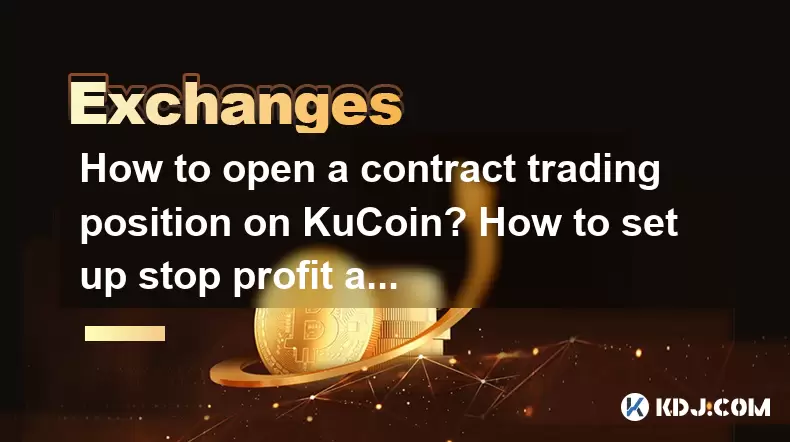
Opening a contract trading position on KuCoin and setting up stop profit and stop loss are essential skills for any cryptocurrency trader looking to manage risk and potentially maximize profits. This article will guide you through the detailed steps of initiating a contract trading position on KuCoin and configuring your stop profit and stop loss settings.
Accessing the KuCoin Futures Trading Platform
To begin, you need to access the KuCoin Futures trading platform. Here's how you can do it:
- Log into your KuCoin account. If you don't have an account yet, you'll need to sign up and complete the necessary verification processes.
- Navigate to the Futures trading section. You can find this by clicking on the "Futures" tab in the top menu of the KuCoin website or app.
Selecting a Contract for Trading
Once you're in the Futures section, you'll need to choose the contract you want to trade:
- Browse through the available contracts. KuCoin offers various cryptocurrency futures contracts, such as Bitcoin (BTC), Ethereum (ETH), and others.
- Select the contract that aligns with your trading strategy. Consider factors like liquidity, trading volume, and the contract's specifications (e.g., leverage, expiration date).
Opening a Contract Trading Position
Now, let's go through the steps to open a contract trading position:
- Click on the contract you've decided to trade. This will open the trading interface for that specific contract.
- Choose your trading direction. You can go long (buy) if you expect the price to rise, or short (sell) if you expect the price to fall.
- Set your leverage. KuCoin allows you to trade with leverage, which can amplify both gains and losses. Be cautious and choose a leverage level that aligns with your risk tolerance.
- Enter the amount you wish to trade. This can be in terms of the contract's base currency or in USDT, depending on the contract.
- Review your order details. Make sure all the parameters (direction, leverage, amount) are correct.
- Click "Buy/Long" or "Sell/Short" to open your position. Your order will be executed based on the current market price or at a specified limit price if you choose to use a limit order.
Setting Up Stop Profit and Stop Loss
Setting up stop profit and stop loss orders is crucial for managing your risk and securing profits. Here's how to do it on KuCoin:
- Go to the "Open Orders" or "Positions" section of the Futures trading interface. This is where you can manage your active positions.
- Locate the position for which you want to set stop profit and stop loss.
- Click on the "Edit" or "Modify" option next to your position. This will open a window where you can adjust your order settings.
- Enter the stop profit price. This is the price at which you want to automatically close your position to lock in profits. For example, if you're long on BTC at $30,000, you might set a stop profit at $32,000.
- Enter the stop loss price. This is the price at which you want to automatically close your position to limit losses. For example, if you're long on BTC at $30,000, you might set a stop loss at $28,000.
- Confirm your settings. Review the stop profit and stop loss prices to ensure they align with your trading strategy.
- Click "Confirm" or "Save" to apply your stop profit and stop loss orders. These orders will now be active and will automatically execute if the market reaches the specified prices.
Monitoring and Adjusting Your Position
Once your position is open and your stop profit and stop loss orders are set, it's important to monitor your position and be ready to make adjustments:
- Keep an eye on market conditions. Cryptocurrency markets can be volatile, and prices can move quickly.
- Review your position regularly. Check if your stop profit and stop loss levels are still appropriate given the current market situation.
- Adjust your stop profit and stop loss orders if necessary. You can do this by following the same steps outlined above to edit your position.
Closing Your Position Manually
If you decide to close your position manually before your stop profit or stop loss orders are triggered, here's how to do it:
- Navigate to the "Positions" section of the Futures trading interface.
- Find the position you want to close.
- Click on the "Close" or "Liquidate" option next to your position. This will open a window where you can specify the amount you want to close.
- Enter the amount you wish to close. You can close the entire position or a portion of it.
- Review your order details. Ensure the amount and other parameters are correct.
- Click "Confirm" or "Close" to execute the order. Your position will be closed at the current market price or at a specified limit price if you choose to use a limit order.
Frequently Asked Questions
Q: Can I set multiple stop profit and stop loss orders for the same position on KuCoin?
A: No, KuCoin currently allows only one stop profit and one stop loss order per position. If you need to adjust these orders, you must cancel the existing ones and set new ones.
Q: What happens if the market price gaps through my stop profit or stop loss price on KuCoin?
A: If the market price gaps through your stop profit or stop loss price, your order will be executed at the next available price. This could result in a slightly different execution price than your specified stop price, especially in highly volatile markets.
Q: Can I use trailing stop orders on KuCoin for futures trading?
A: Yes, KuCoin supports trailing stop orders for futures trading. You can set a trailing stop to automatically adjust your stop loss price as the market moves in your favor, helping to lock in profits while still allowing for potential further gains.
Q: How does KuCoin handle partial fills for stop profit and stop loss orders?
A: KuCoin's stop profit and stop loss orders are typically executed as market orders once triggered. If the order cannot be fully filled at the current market price, it may result in a partial fill. The remaining portion of the order will stay active until it can be filled or until you cancel it.
Disclaimer:info@kdj.com
The information provided is not trading advice. kdj.com does not assume any responsibility for any investments made based on the information provided in this article. Cryptocurrencies are highly volatile and it is highly recommended that you invest with caution after thorough research!
If you believe that the content used on this website infringes your copyright, please contact us immediately (info@kdj.com) and we will delete it promptly.
- BlockDAG, SEI, Ethena: Top Crypto Performers Under the Microscope
- 2025-08-03 10:50:16
- Bitcoin Blasts Past $119K: How Institutional Adoption and Macro Shifts Fuel the Fire
- 2025-08-03 10:55:16
- Crypto, Grok, and August: Decoding the Latest Trends and Insights
- 2025-08-03 11:10:16
- Crypto, Phishing, and Your Wallet: A New Yorker's Guide to Staying Safe
- 2025-08-03 10:30:16
- Troller Cat Meme Coin Presale Soars: A New King in the Crypto Jungle?
- 2025-08-03 10:30:16
- Grayscale, Altcoin Trust, and Mid-Cap Mania: What's the Deal?
- 2025-08-03 08:50:16
Related knowledge
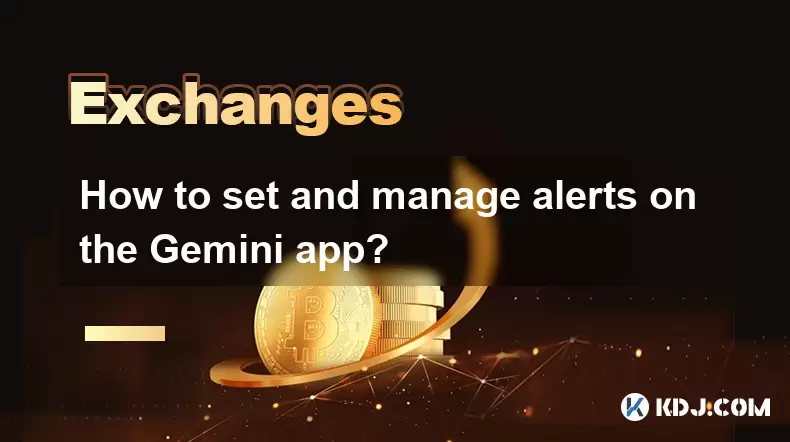
How to set and manage alerts on the Gemini app?
Aug 03,2025 at 11:00am
Understanding the Gemini App Alert SystemThe Gemini app offers users a powerful way to stay informed about their cryptocurrency holdings, price moveme...
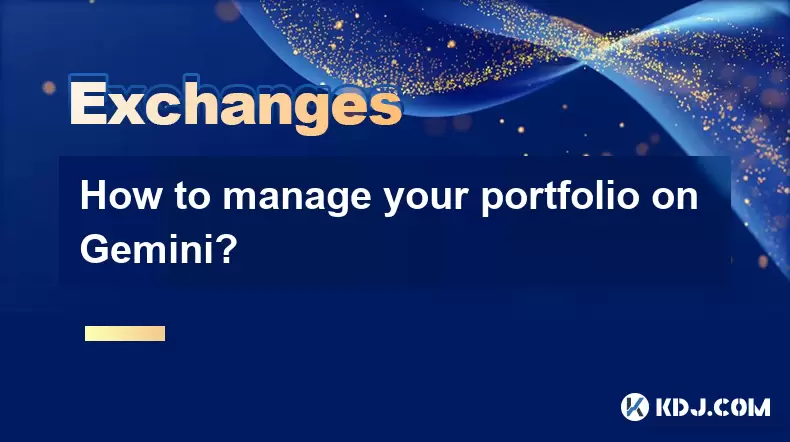
How to manage your portfolio on Gemini?
Aug 03,2025 at 10:36am
Accessing Your Gemini Portfolio DashboardTo begin managing your portfolio on Gemini, you must first log in to your account through the official websit...
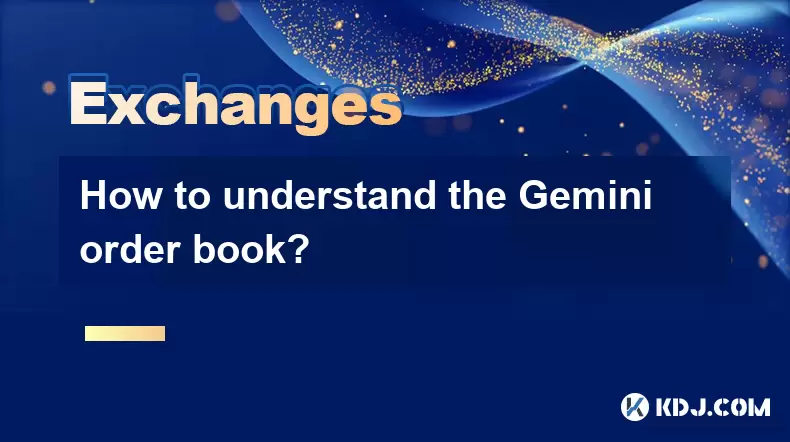
How to understand the Gemini order book?
Aug 02,2025 at 03:35pm
What Is the Gemini Order Book?The Gemini order book is a real-time ledger that displays all open buy and sell orders for a specific cryptocurrency tra...
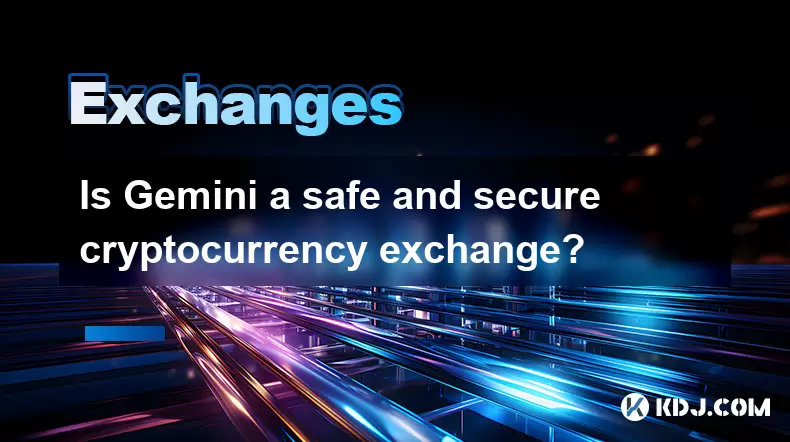
Is Gemini a safe and secure cryptocurrency exchange?
Aug 02,2025 at 10:42pm
Understanding Gemini’s Regulatory ComplianceGemini is a New York State-chartered trust company, which places it under the supervision of the New York ...
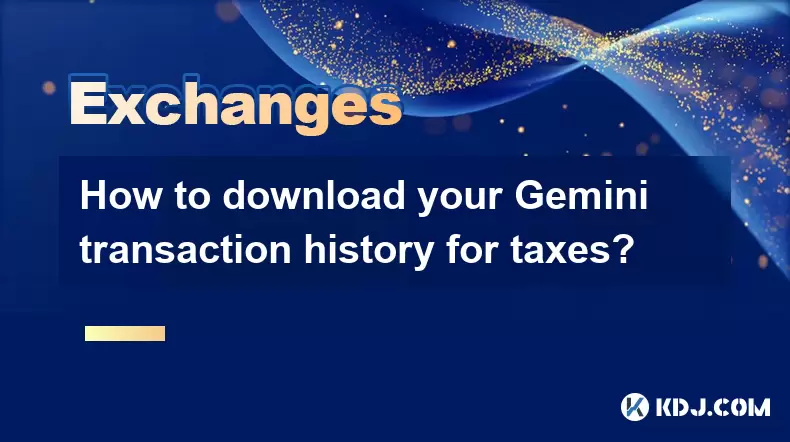
How to download your Gemini transaction history for taxes?
Aug 03,2025 at 09:15am
Understanding Gemini Transaction History for Tax PurposesWhen preparing your cryptocurrency tax filings, having a complete and accurate record of all ...
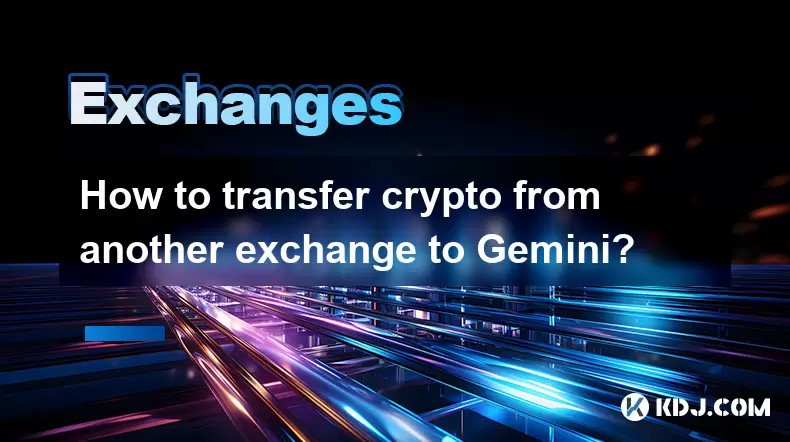
How to transfer crypto from another exchange to Gemini?
Aug 02,2025 at 07:28pm
Understanding the Basics of Crypto Transfers to GeminiTransferring cryptocurrency from another exchange to Gemini involves moving digital assets from ...

How to set and manage alerts on the Gemini app?
Aug 03,2025 at 11:00am
Understanding the Gemini App Alert SystemThe Gemini app offers users a powerful way to stay informed about their cryptocurrency holdings, price moveme...

How to manage your portfolio on Gemini?
Aug 03,2025 at 10:36am
Accessing Your Gemini Portfolio DashboardTo begin managing your portfolio on Gemini, you must first log in to your account through the official websit...

How to understand the Gemini order book?
Aug 02,2025 at 03:35pm
What Is the Gemini Order Book?The Gemini order book is a real-time ledger that displays all open buy and sell orders for a specific cryptocurrency tra...

Is Gemini a safe and secure cryptocurrency exchange?
Aug 02,2025 at 10:42pm
Understanding Gemini’s Regulatory ComplianceGemini is a New York State-chartered trust company, which places it under the supervision of the New York ...

How to download your Gemini transaction history for taxes?
Aug 03,2025 at 09:15am
Understanding Gemini Transaction History for Tax PurposesWhen preparing your cryptocurrency tax filings, having a complete and accurate record of all ...

How to transfer crypto from another exchange to Gemini?
Aug 02,2025 at 07:28pm
Understanding the Basics of Crypto Transfers to GeminiTransferring cryptocurrency from another exchange to Gemini involves moving digital assets from ...
See all articles

























































































